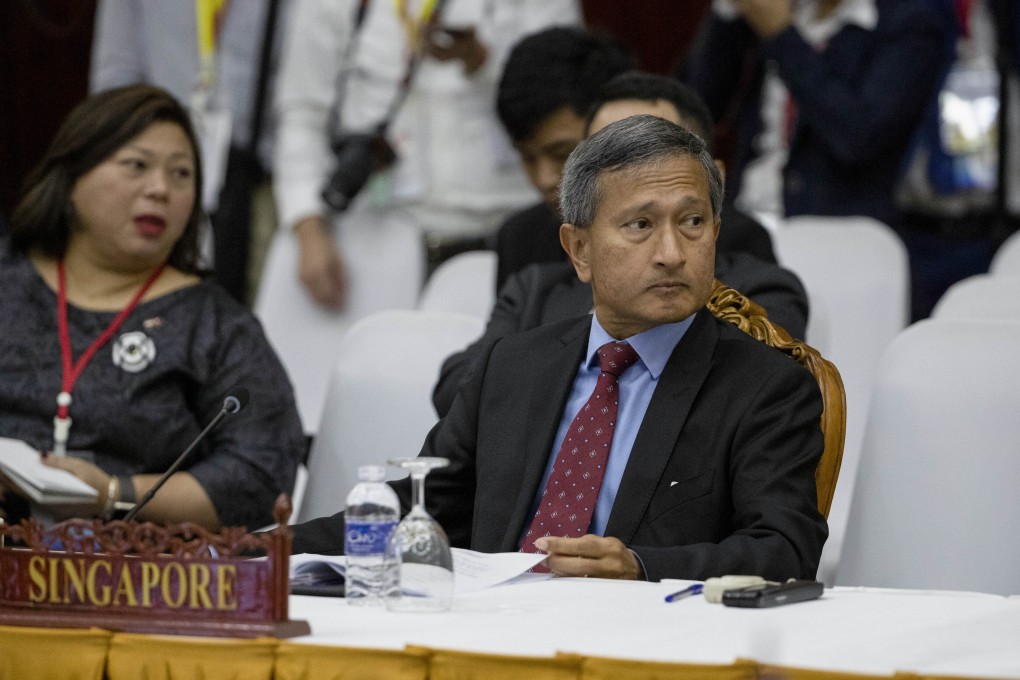Myanmar coup: Singapore’s foreign minister says ‘widespread’ sanctions won’t work
- Vivian Balakrishnan says generalised sanctions would only hurt Myanmar’s citizens rather than the junta
- He urges junta leader Aung Min Hlaing and Aung San Suu Kyi to sit for talks and says Asean can play a ‘constructive’ role in country’s return to civilian rule

Speaking to lawmakers in parliament, Balakrishnan said he underscored his message in recent phone calls with counterparts from the United States, Germany and other nations.
“In all my discussions, my phone calls, I’ve said that we should not embark on widespread, generalised, indiscriminate sanctions because the people who will suffer the most will be the ordinary people in Myanmar,” Balakrishnan said in response to questions from lawmakers.
That sentiment was largely in line with opinions expressed by other officials and commentators within Asean countries.
Last week, New Zealand announced the suspension of high-level military and political contacts with Myanmar, imposed a travel ban on the country’s military leaders, and pledged to ensure that its aid disbursements would not be for projects that benefited the junta.